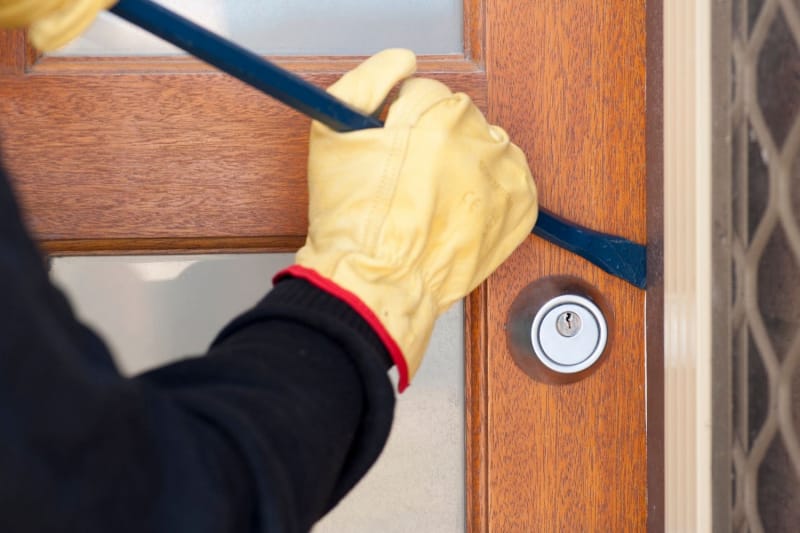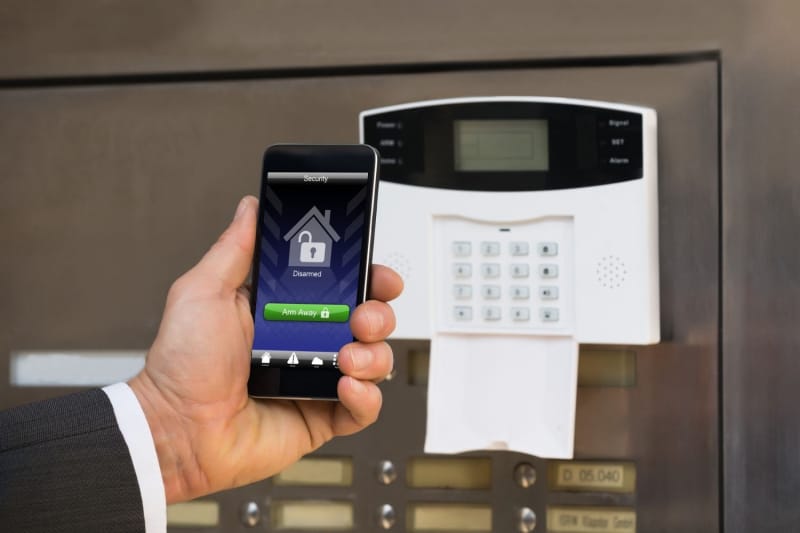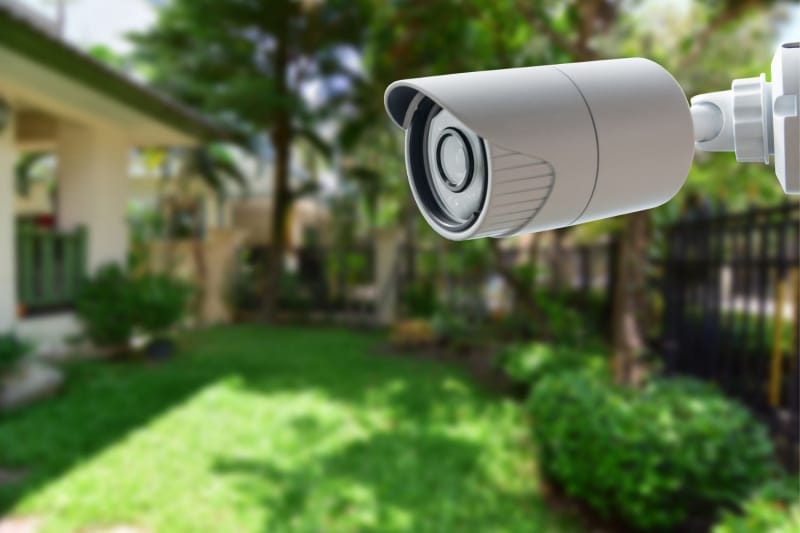Résolu ! Qu'est-ce qu'un crime contre les biens ? Comment puis-je me protéger pour ne pas devenir victime d'un crime contre les biens ?
Hello, my friend, hello again; today we come together to talk about Solved! What Is Property Crime? How Can I Protect Against Becoming a Victim of a Property Crime? and hope the blog can help you.
En 2019, 6,92 millions de cas de crimes contre les biens ont été signalés aux États-Unis. Il existe des moyens de vous protéger pour ne pas devenir une victime.
Q: Our new neighborhood has a reputation for being very safe, but over the past year the rate of property crime nearby has ticked up. Are we still safe? Should I be worried?
UN: It can be unsettling when any type of crime is on the rise near your home. Property crime is jarring, and certainly inconvenient. Most of the time, property crime is a crime of convenience, so there are actions you can take to reduce your chances of being a victim. In addition, most property crimes don’t involve violence, so your chief concern is about protecting your belongings and your property. And the rate of property crime (as well as violent crime) has plummeted in the United States since 1990 by almost 50 percent. That said, there were still $16.4 billion in property crime losses in 2018, and 1.12 million burglaries and 5.1 million cases of larceny reported in the United States in 2019, so it’s a good idea to educate yourself about the types of crime taking place in your neighborhood and take steps to protect your property.
Besoin d'un système de sécurité domestique ? SimpliSafe peut vous aider. Grâce à une solution complète pour toute la maison, vous pouvez être préparé aux imprévus. Consultez les systèmes et les prix SimpliSafe.
Property crime occurs when a person’s property is taken or destroyed, but, in most cases, no violence is used or threatened in the process.
Has someone taken or destroyed your property without permission and with no intention of paying for it or returning it? If so, then you’ve been the victim of property crime. While there are specific types of property crime definitions and different terms used for the grades of crime based on the state and town in which you live, the basis of all the definitions is that someone has taken property from someone else (a person, business, group, or store) by removing, defacing, damaging, or destroying it so that the original owner will be deprived of that item.

There are typically seven types of property crimes.
The term “property crime” probably brings to mind the crimes of theft of property and burglary, but there are actually seven different types of property crime—and some distinctions may be finer than you expect. In some cases, they’re just distinctions of terminology, because different states use different words to define the same crime. The first four types are focused on vol, or taking someone’s property with no intention of ever returning it. Theft is one type of property crime, but the term is often used to describe larceny, whose definition is essentially the same. Robbery is sometimes also classified as theft, but it has an important difference: In most jurisdictions, a robbery includes the threat of violence or actual force to coerce someone to give up money or property. Some areas have reclassified robbery as a violent crime or assault instead of a property crime because the critical part of the crime is the threat or violent act, with the property theft being secondary to the well-being of the victim, while others still define it as a property crime. Shoplifting is another property crime sometimes referred to as theft, but this type of theft isn’t from a person, it’s from a retail establishment. To commit the crime of shoplifting, someone must conceal or take merchandise from an establishment without paying for it.
Protégez votre maison et votre famille avec un système de sécurité de premier ordre. Les systèmes Vivint installés par des professionnels ne se contentent pas de vous alerter des menaces : ils contribuent à la fois à les prévenir et à les dissuader. Découvrez les caméras et les services de Vivint.
The other three types of property crime involve damage or destruction: crimes against property, rather than the removal of it. Burglary is when someone enters a home or other building unlawfully (usually by force or some kind of coercion) with the intent of stealing something or committing another type of crime entirely. Arson and vandalism are focused on destroying property belonging to someone else. For a crime to be considered vandalism, the items must be defaced, destroyed, or devalued in some way. Arson specifically involves intentionally setting fire to a structure, building, forested land, or other property. If the structure is inhabited at the time or bodily injury occurs, arson can escalate to a violent crime rather than a property crime.

To avoid becoming a victim of a property crime, arm your home with the right tools.
The tools you’ll need to reduce your chances of being the victim of a crime come in two forms: one is protective devices, and the other is common sense. First, investing in good, solid door locks with deadbolts and secure window locks—and then actually using them—goes a long way toward protecting your home. Doorbell cameras and lumières à détecteur de mouvement on the outside of your home are also deterrents, and hiring a landscaper to clear the areas around your doors and windows to reduce hiding places can make your home less appealing to prospective thieves. Other tools may be things you already own but need to use differently: Consider keeping automatic garage door openers in your bag or on your key ring instead of leaving them in cars parked in the driveway. Also, consider a home security system.
Les systèmes de sécurité résidentielle Deep Sentinel peuvent vous permettre, à vous et à votre famille, de vous sentir en sécurité grâce à des équipements haut de gamme et à des gardes en direct qui surveillent votre maison. Consultez les systèmes et les prix de sécurité résidentielle Deep Sentinel.
In terms of common sense, you’ll want to take basic steps to provide less information to potential criminals. For example, you won’t want to put the box that contained your new high-end laptop or TV out by the curb on pickup day—break it down, fold it inside out, and secure it among other recyclables so you don’t advertise the new hardware available inside. Avoid placing valuables in a clear line of sight from the windows, or draw curtains or blinds that obscure the view inside, and don’t leave expensive toys and bicycles or ladders and tools outdoors. Start being more aware of your surroundings: Unusual cars driving slowly around a neighborhood once may be someone looking for an address, but seeing them driving around more than once may be worth a call to law enforcement to investigate. When you’re away, set your lights on timers and make sure you’ve stopped the mail or asked a neighbor to pick it up so your home doesn’t look empty.
None of these actions can ensure that you won’t be a victim, but together they’ll go a long way toward deterring criminals from choosing your house.
Frontpoint protège votre maison en cas d'urgence, qu'il s'agisse d'une effraction, d'un incendie, d'une urgence médicale, etc. Voir les produits Frontpoint.
Consider starting a neighborhood watch to prevent property crimes.
If you think a neighborhood watch group sounds like a remnant from the 1980s, with big block parties and signage warning criminals away, think again. While neighborhood watches really took hold during that period of higher crime and then subsided as more families sent both adults to work during the day, neighborhood watches are springing back up as individuals within communities reach out to one another to try to reconnect and make their neighborhoods safer and more secure. Neighborhood watches can be formalized with leadership and connections to local law enforcement, or they can be hyper-localized informal arrangements between a handful of homeowners on a single street. Getting to know your neighbors is one of the best defenses against property crime, because with everyone watching out for their neighbors, collecting packages from steps, taking in mail, notifying one another if garage doors have been accidentally left open, or alerting neighbors if there’s someone on the street acting suspiciously, criminals have less room to operate. And you might just find that you want to start the block parties up again, too.

Install a security system on your property to deter burglars.
Burglars don’t want to draw attention to themselves. They want to quickly and quietly get in and out, taking as much with them as they can. So a home with security cameras, video doorbells, and signage indicating a security system is almost never going to be their first target. The threat of a siren, motion sensor lights, and automatic summoning of law enforcement may be enough to convince them to head elsewhere. In addition, the meilleurs systèmes de sécurité à domicile (tel que Vivint ou ADT) often integrate with smart-home devices, so you can turn the lights on and off or check to make sure that you locked the back door after you’ve left for your vacation (and potentially even lock it from your phone, if you did forget). If you’re concerned about the cost and commitment, it’s worth comparing several different plans and investigating whether a Système de sécurité DIY might work for you. Working as both a visual and audible deterrent to potential burglars, a home security system, combined with great neighborhood relationships and thoughtful precautionary steps on your part, can round out a strong preventative plan to help you avoid a property crime.






